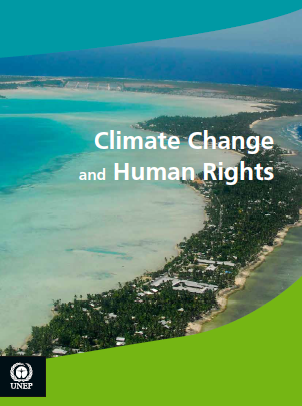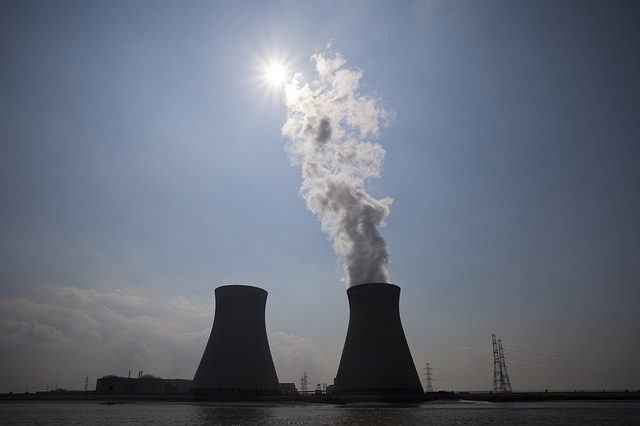Joanna Zhou
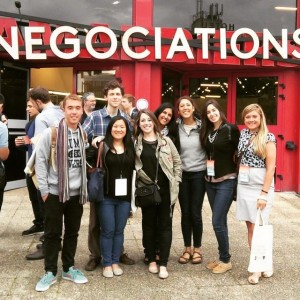
On 26 May 2015, eight students from Columbia University attended “Make it Work: Paris Climat 2015” – an innovative simulation of international climate change negotiations. The simulation was hosted and organized by Sciences Po and held in Nanterre, Paris over six days. It was attended by over 200 students representing 41 delegations, and included students from universities such as Tsinghua University, London School of Economics, Sydney University, UCLA and various universities across France. The end result after days of intense negotiations was a 25 page final text, encapsulating a visionary and universal agreement for climate action.
Although based on the procedures of the UNFCCC COP negotiations, the simulation aimed to break free of the conventional boundaries within which previous COP negotiations have operated. The main purpose of the negotiation was to experiment within an alternate negotiating framework, to see if students could come up with ambitious and innovative solutions to address the issue of climate change.
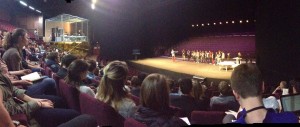
One crucial difference was that the delegations not only included nation states representing diverse national interests, but also included delegations representing various sectors of the environment and other key stakeholders. Such delegations included “Soil”, “Oceans”, “Atmosphere”, “Endangered Species”, “the Sahara Dessert” and “Forests”. Other climate change stakeholders also represented at the negotiations included “International Regulatory Bodies”, “the European Union”, “the Internet”, “Youth”, “NGOs”, “Polar Regions”, “Stranded Oil Assets” and “Climate Refugees”. These delegations were given the same negotiation and voting rights as nation states.
The more traditional nation states delegations included countries such as the United States, China, India, Iran, Nigeria, the Maldives, Bangladesh, Australia and France. Therefore, the format of the simulation not only covered a diverse set of “traditional” national interests within the climate change context, but also required delegates to negotiate directly with “non-traditional” non-state delegations.
A second dimension of the negotiations was that within each delegation, individual delegates represented one of five “entities” – i.e., entities from government, civil society, the economic sector, a critical/endangered territory and an open entity which corresponded to a non-state delegation. Individuals were given rules which allowed them to also negotiate with other entity delegates in order to contribute to the final agreement.
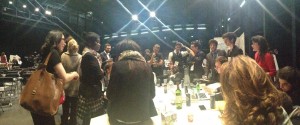
The result of negotiations along these “entity” lines was also able to contribute novel concepts and solutions, including a declaration negotiated between the “Saudi Arabia” delegation (represented by Columbia University) and “Stranded Oil Assets” for the creation of a “Climate Security Council”. This council was comprised of influential and willing corporations, key industry players and interested stakeholders. Its objective was to advise on the effective and safe management of a decrease in fossil fuel production. The text of the declaration was based off the Nuclear Non-proliferation Treaty in recognition of the urgency and potentially catastrophic consequences of climate change.
In addition to the diverse range of negotiating parties, there was also an “artistic theatrical” component. The simulation took place within a theatre space, which included open spaces accessible to the general public. All aspects of the negotiation process was therefore transparent as they took place over several days and nights. What the public would have witnessed was delegates painstakingly negotiating, drafting, debating, compromising, refining and finally reaching consensus on each article. There were often conflicts and impromptu side negotiations, where compromises were struck, particularly between delegations with conflicting positions and interests. Negotiations and lobbying also took place live through social media outlets such as Twitter (https://twitter.com/cop21miw #COP21MIW), which were also accessible by the public at large. On occasion, the public may have also witnessed demonstrations staged by various delegates. All in all, there was a lot “on show”.
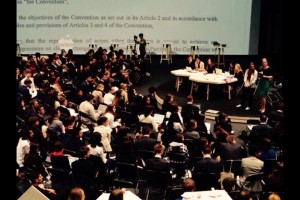
The final result after four days of intense negotiations was a 25 page text, which was agreed upon by unanimous consensus between all delegations. This text specifically creates “visions” and “pathways” to addressing climate change. Specifically, the topics addressed included “energy consumption and production”, “land, air and water”, “governance” and “endangered territories”.
Although many key provisions were weakened during the process of reaching consensus (as is often the case during the COP negotiations), many sensitive climate issues were ambitiously and directly addressed in these negotiations. Such issues which were highlighted in the final text included the need to recognize the legal status of climate refugees, the continued recognition for all nation states to consider market mechanisms as the most effective way in addressing climate change, the need to limit fossil fuel extraction (including risky drilling activities within the arctic region), a larger and more permanent role for finance and technology transfer and a global IPCC “carbon budget” compliant target for renewable energy generation by 2050.
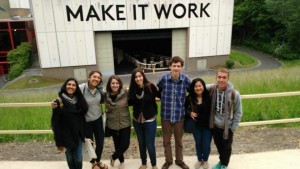
Throughout the negotiations, the Columbia University delegates represented Saudi Arabia and Algeria. Both teams were frequently challenged by national policy considerations, as well as the impacts of climate change on their economy, their society and their environment.
The opportunity to participate in this unique simulation was facilitated by Maison Francaise, for which the Columbia delegates were very grateful. Despite the challenges during the negotiation process (including the real risk of a permanent stalemate), the final product is a representation of the optimism, the energy and ambition of future generations, and the belief that we can “make it work” to find accord and solutions to tackle climate change.
Further information about the simulation can be found at https://www.cop21makeitwork.com/.


